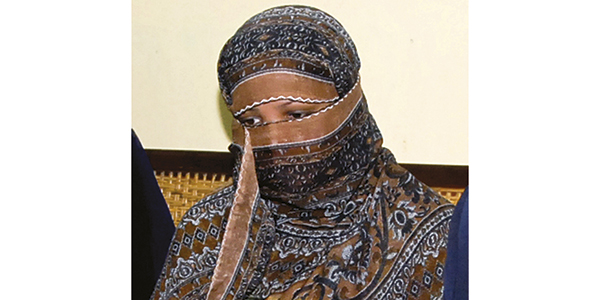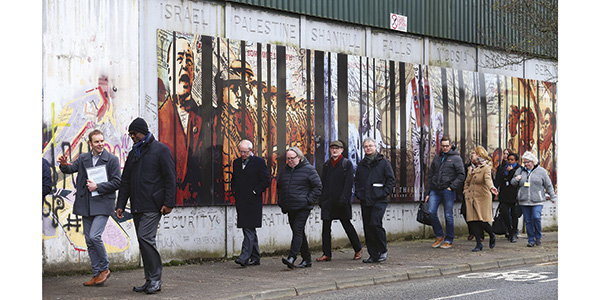The Archbishop of Canterbury Justin Welby (above) has paid a private visit to Clonard Monastery in Belfast, accompanied by more than 60 members of the clergy of the Church of England. Archbishop Welby and his party then walked along the city’s “peace” walls dividing Catholic and Protestant neighbourhoods. Prayers were offered for both communities and for peacemakers. Clonard monastery has been at the heart of peace efforts in Northern Ireland. The Rector, Fr Noel Kehoe, C.Ss.R., speaking about the current political crisis amid the collapse of power-sharing talks, described it as “a failure in hospitality”. “The open space is narrowing,” he said, “and leadership is found wanting.” Archbishop Welby was presented with a hand-painted icon and gave the monastery an illustration from an Irish ninth- century book of the Gospels that hangs in Lambeth Palace.
The Church in Scotland has come under fire for its opposition to a “smacking ban”. Scotland is the first part of the UK to make the physical punishment of children a criminal offence, following the passage of a bill introduced by Green MSP John Finnie. The Church’s Parliamentary Officer at Holyrood, Anthony Horan, said that there was little public support for the criminalisation of parental chastisement: “It is not the role of the state to interfere in how parents go about building a strong relationship with their children, except in the most exceptional of circumstances.” Supporters of the ban have urged the Church to change its position in light of the fact that traditionally Catholic countries such as Spain Ireland and Portugal upheld the removal of “justifiable assault” as a defence in cases of physical punishment or smacking.
Abuse-case bishop criticised
The Bishop of Dromore in Northern Ireland has been criticised by parents in his diocese over his decision to preside at the funeral of Fr Malachy Finnegan in 2002, despite knowing of sexual abuse allegations against him.
A BBC Spotlight programme recently examined the diocese’s handling of cases of abuse by Fr Finnegan following a settlement last October of a case involving the priest, a former president of St Colman’s College in Newry. Between 1994 and 2016, 12 allegations of abuse were made against him. Bishop John McAreavey described the priest’s actions as “abhorrent, inexcusable and indefensible”. He also said his decision to say the Funeral Mass had been wrong. Parents of some children attending four primary schools have said they do not want Bishop McAreavey to confirm their children.
Scotland’s First Minister Nicola Sturgeon, who this weekend is giving the Cardinal Winning lecture at the University of Glasgow, has praised the country’s Catholic schools. Scotland is marking the centenary of state-funded Catholic schooling. Ms Sturgeon said Catholic schools had provided the young in Scotland with “an excellent education”.
Catholic theologians are seeking a meeting with the Bishops of England and Wales to see how their “expertise can best be placed at the service of the Church”. In an initiative of the Catholic Theological Association, 19 theologians and religious educators met in Luton last weekend. Professor Susan Docherty from Newman University in Birmingham told The Tablet that the debate about the English translation of the Missal would be an ideal area for Catholic theologians to make a contribution. “There is a danger of sidelining us, which we are keen to avoid,” she said.
Egan backs rosary crusade
Bishop Philip Egan of Portsmouth has followed Cardinal Vincent Nichols and Bishop John Keenan of Paisley in lending his support to a rosary crusade around the coast of Britain. “Our culture is facing so many challenges at this moment, not least to the sound values that underpin our family and social life,” Bishop Egan wrote in a message of support to the campaign’s organisers. The Rosary on the Coast campaign currently has 60 locations where people will gather on 29 April.
Private prayer
A consistory court in the Church of England has ruled that churches must switch off CCTV cameras during services because prayer is private.



 Loading ...
Loading ...